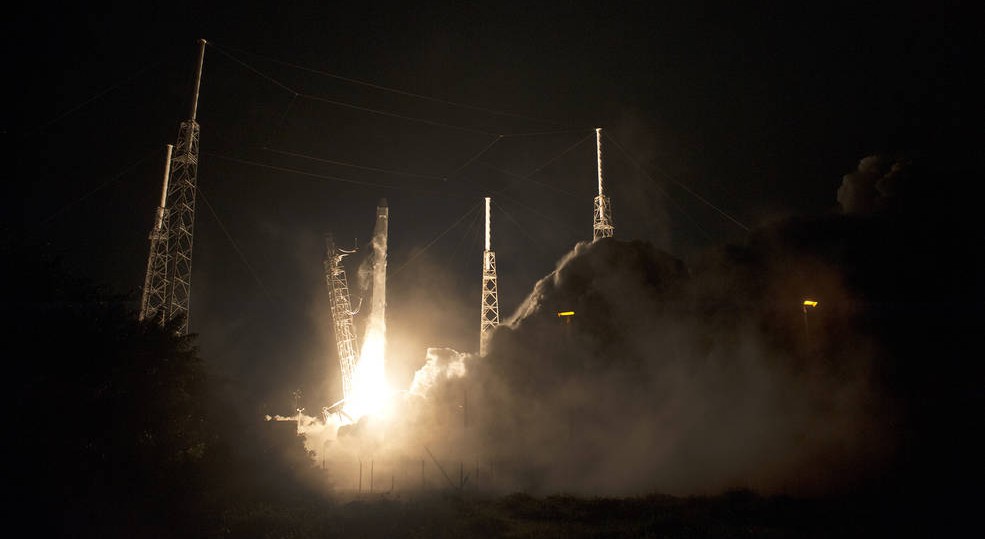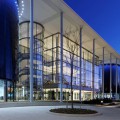
A SpaceX Falcon 9 rocket lifts off from Space Launch Complex 40 at Cape Canaveral Air Force Station on Jan. 10, 2015 carrying the Dragon resupply spacecraft to the International Space Station. Credits: NASA/Tony Gray & Kevin O’Connel
SpaceX’s first successful landing of its Falcon 9 rocket last month marked a big step toward reusable rockets and reducing the cost of space travel. On December 21st, 2015, the first-stage booster landed upright at Cape Canaveral after launching 11 Orbcomm satellites.
Unfortunately, another attempt to land a Falcon 9 booster – this time on a drone ship in the Atlantic Ocean – failed on Sunday. The rocket successfully boosted the Jason-3 satellite into orbit and navigated to the floating platform, but a faulty landing leg caused it to topple over and explode after touching down.
Still, SpaceX’s progress in this area is being hailed as an astounding engineering feat. Rockets must be extremely durable in order to withstand the rigors of a space launch, and exacting technological precision is required to return them safely to Earth. Though not as complete or consistent as SpaceX would like, its successes demonstrate that reusable rockets are an achievable goal.
Founded in 2002, SpaceX designs, manufactures and launches rockets and spacecraft with the ultimate objective of enabling people to live on other planets, according to its website. Headquartered in Hawthorne, Calif., the privately owned company has more than 4,000 employees nationwide, including at its launch facilities at Cape Canaveral Air Force Station and Vandenberg Air Force Base.
You Might Also Enjoy: Samsonite, Samsung Aim to Connect Travelers with their Luggage
Historically, the first stages of rockets have been discarded in the ocean once ascent is complete. This represents a hefty financial loss – tens of millions of dollars per launch, at minimum. But the cost could significantly decrease if SpaceX can consistently retrieve and reuse its rockets.
Success may also drive innovation. If SpaceX masters this technology, competitors like Boeing and Lockheed Martin’s joint United Launch Alliance would be forced to find ways to keep up.
The Falcon 9’s successful December landing capped a year of milestone achievements in aeronautics. A month earlier, Blue Origin, a space company founded by Amazon’s Jeff Bezos, became the first to launch a rocket and return it to Earth, even though it didn’t reach the altitude or speed of Falcon 9.
SpaceX has taken it a step further, showing that the idea of reusable rocket for deep space travel isn’t so out of this world.





